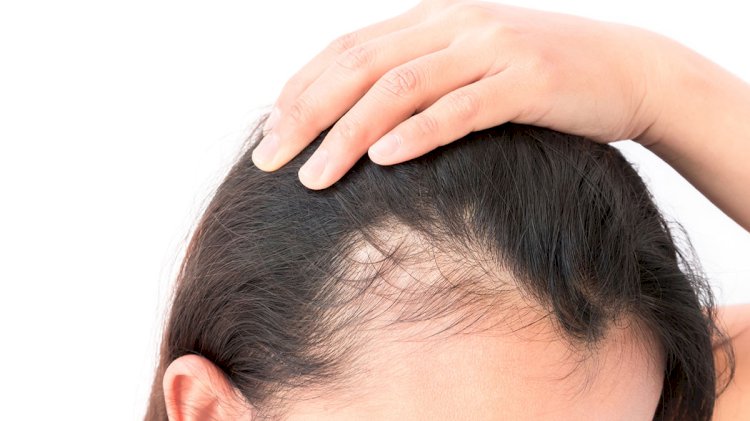Is There Any Treatment For The Sores On My Head?
The common condition of sores on the head is varied from person to person. So, the treatments too vary. Here we help you identify what are the possible causes and types of sores on the scalp and other parts of the body.

Reason Behind The Sores On Scalp
It can hurt and maybe embarrassing when you have sores on your head or scalp. They also can be hard to see unless you are skilled at taking back-of-the-head selfies.
Making things like brushing your hair painful, what causes these lumps and bumps? They range from minor local infections to signs of a health condition that can affect your whole body.
However, most sores on the scalp aren’t serious. To see your doctor if they bother you is a good idea. In case you have the following, this is especially true:
Lasting more than a few days or that won’t heal are your head sores
They keep coming back when you have a lot of sores
Noticeable changes in the shape, size, or colour of bumps or lumps on your scalp.
Contact Dermatitis
Happening when your skin reacts badly to something that touches it is contact dermatitis. From shampoos or other hair products, you might get it on your scalp. You can also get it from brushing the poison oak leaf against your head. Here it comes as patches of red, itchy, scaly skin. It can also lead to crusty, oozing sores when it's severe.
It should go away in 2 to 4 weeks if you stay away from the thing that triggered the rash. Switch to a different brand to see if that helps in case the symptoms start just after you try a new hair product. To help figure out what’s causing the problem, your doctor also does skin tests.
Cysts
Developing in your hair follicles are these smooth firm lumps. Anchoring each hair to your scalp is the follicles. Sometimes they can get swollen and painful and may ooze a thick fluid with a bad smell as cysts grow slowly and usually don’t hurt.
Usually going away on their own, cysts are harmless. See your doctor if a cyst on your scalp bothers you. It is possible that she can treat it with steroid shots easing inflammation, draining it, or removing it.
Folliculitis
You can get this kind of infection if bacteria, a virus, or fungus gets into a hair follicle. This condition comes similar to a pimple, a painful red bump with or without a white head. Usually, these sores are crusty and scabby too.
Typically clearing up without treatment are these sores. Use a warm compress to make it feel better and also keep the area clean. See your doctor if it lasts more than a few days. Depending on what’s causing it you might need an antibiotic cream or other treatment.
Lice
Usually, it is found that these tiny bugs don’t cause head sores by themselves. Whereas they make the scalp very itchy. Leading to painful and even infected sores is the scratching. You may notice their eggs which come as the size of pinhead attached firmly to shafts of hair if you have lice. These come about in the size of a sesame seed, as you see the bugs.
Enough to get rid of them are the special over-the-counter shampoos or lotions. If shampoos don’t do the trick, talk to your doctor about other treatments.
Scalp Ringworm
In this case, ringworm isn’t a real worm. Caused by a fungus, it is a common infection. Depending on where it is on your body, ringworm goes by different names. It is also known as jock itch as well as athlete’s foot. It is called tinea capitis when it's on your head. Getting worse over time, it causes patches of itchy skin and hair loss. Called a kerion you also may get a painful, pus-filled sore on your scalp.
Most common in kids is the scalp ringworm. Whereas it can also affect adults. Prescription medicine you take by mouth is the best treatment.
They don’t tend to work on the scalp with ringworm creams and powders.
Scalp Psoriasis
Causing patches of red, flaky skin on your scalp is this condition.
Scratching can cause bleeding and scabbing since it is often itchy. Here psoriasis is found to be affecting the whole body. Besides your scalp, areas such as your elbows and knees are often likely to show up in this condition.
Work with your doctor to treat scalp psoriasis. Helping to control it are special shampoos with coal tar or salicylic acid. Other treatments including medicines and light therapy may also be needed.
Seborrheic Dermatitis
Dandruff is the mildest form of this type of eczema you probably know about. On your scalp, they can cause scaly, itchy patches that ooze and scab over. Maybe worse in winter as symptoms tend to come and go.
Here it comes with no cure. Special shampoos, medicines, and creams can help with the symptoms some times.
Skin Cancer
Called basal cell carcinoma, the most common form of skin cancer typically grows in areas most exposed to the sun such as the head and neck. Depending on the size and region of the study, its occurrence on the scalp ranges from 1.1% to 71%. If treated early BCC is curable.
Occurring on the scalp in 3% of cases is melanoma far deadlier skin cancer.
Finally, What Are The Other Causes
Lots of other conditions can cause head and scalp sores even though they are not as common. Happening when your immune system attacks healthy cells, they include acne, viruses like chickenpox, and a group of rare autoimmune diseases called pemphigus.
What's Your Reaction?





















